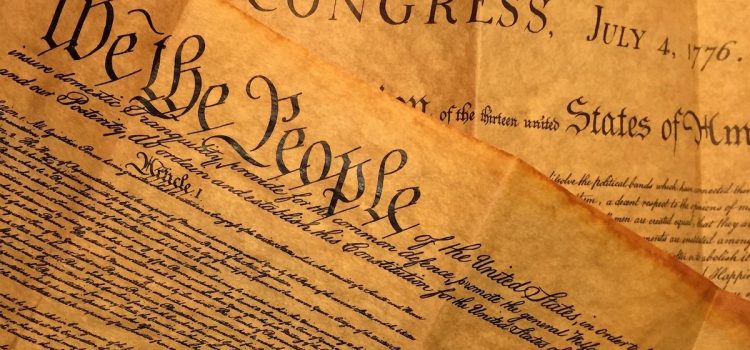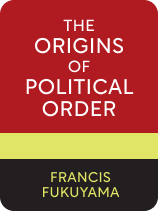

This article is an excerpt from the Shortform book guide to "The Origins of Political Order" by Francis Fukuyama. Shortform has the world's best summaries and analyses of books you should be reading.
Like this article? Sign up for a free trial here.
Why is the rule of law important to modern democracies? Where does it come from?
A major component of modern liberal democracy is the rule of law. Francis Fukuyama explains where the rule of law comes from, how it affects the political order, and how its absence (or weakness) leads to authoritarianism.
Read more for a discussion about the rule of law and its importance to society.
What Is the Rule of Law?
Fukuyama defines the rule of law as the authority of law over legislation. In this context, law refers to the abstract principles of justice and order accepted by a community, whereas legislation refers to the creation and application of specific judicial rules. For example, many contemporary states have constitutions (law) that define certain fundamental human rights and prohibit any policies (legislation) that would violate those rights.
(Shortform note: Fukuyama’s distinction between “law” and “legislation” conflicts with the more commonly accepted definition of “legislation” as the procedure by which a lawmaking body creates and implements new laws. However, the basic principles Fukuyama describes line up with typical definitions of “the rule of law” as adherence to a set of publicly known and agreed-upon norms that apply equally to everyone—even the highest leaders in the land. Put simply, the rule of law means that there are rules governing how rulers can rule.)
Fukuyama argues that the rule of law typically comes from a culture’s religion. He asserts that, in India and Western Europe, religious law (in the form of Indian Brahmanism and European Catholicism) shaped society before states ever emerged. Similarly, he argues that, in the Islamic Middle East, religion and the state arose together, resulting in an Islamic state called a caliphate, in which a religious leader (a caliph) places checks on secular political authority. In all of these cases, leaders were bound by the idea that there was a divine law by which human law had to abide. As a result, leaders in these cultures had at least nominal checks on their power, and their legitimacy depended on their adherence to the rule of law.
(Shortform note: The possible religious basis of the rule of law is reflected in the fact that many national constitutions refer explicitly to God or specific religions. Similarly, even though the European Union’s proposed constitution ultimately rejected any explicit references to faith, it begins with a clause citing the “cultural, religious and humanist inheritance of Europe” as the basis for the rule of law.)
Why Is the Rule of Law Important?
Why is the rule of law important to modern democracies? Fukuyama points out that a strong rule of law is important because it constrains government power. To say a society is bound by the rule of law is to say that governments and rulers don’t have absolute authority to do whatever they want—instead, their actions and decisions are legitimate only if they abide by the overarching law.
(Shortform note: In this way, the rule of law provides the distinction between monarchy and despotism—two forms of government based on rule by a single person. According to 18th-century political philosopher Baron de Montesquieu, a despotic leader wields absolute power and rules by fear, whereas a monarch is constrained by law and rules by honorable submission to the state.)
Because the rule of law limits governmental powers, it naturally follows that, without the rule of law, governments tend toward authoritarianism—a system of government by an unrestrained, often oppressive central leadership that isn’t subject to checks and balances, opposing parties, or legitimate elections. Fukuyama gives China as an example of a culture where this tendency has existed historically and survives today. He says that the Chinese state religion never developed beyond ancestor worship. As a result, there was never a sense of a higher law by which Chinese rulers had to abide. Chinese rulers answered only to themselves—in effect, their policies were the supreme law.
(Shortform note: Though Fukuyama suggests that China’s history of authoritarian rule prevented the state from developing democratic institutions, in the late 20th century, Chinese political theorists debated whether authoritarianism was actually a path to democracy. A school of thought known as neo-authoritarianism took democracy as its end goal, but argued that getting there required a strong central government to dictate economic and social policy until society was stable enough to stand on its own. Scholars note that Chinese head of state Xi Jinping, who took office in 2013, appears to have based his rule on neo-authoritarian ideas.)

———End of Preview———
Like what you just read? Read the rest of the world's best book summary and analysis of Francis Fukuyama's "The Origins of Political Order" at Shortform.
Here's what you'll find in our full The Origins of Political Order summary:
- What modern democracy is and where it came from
- The three components a stable democratic society requires
- Three important takeaways from Fukuyama's book






